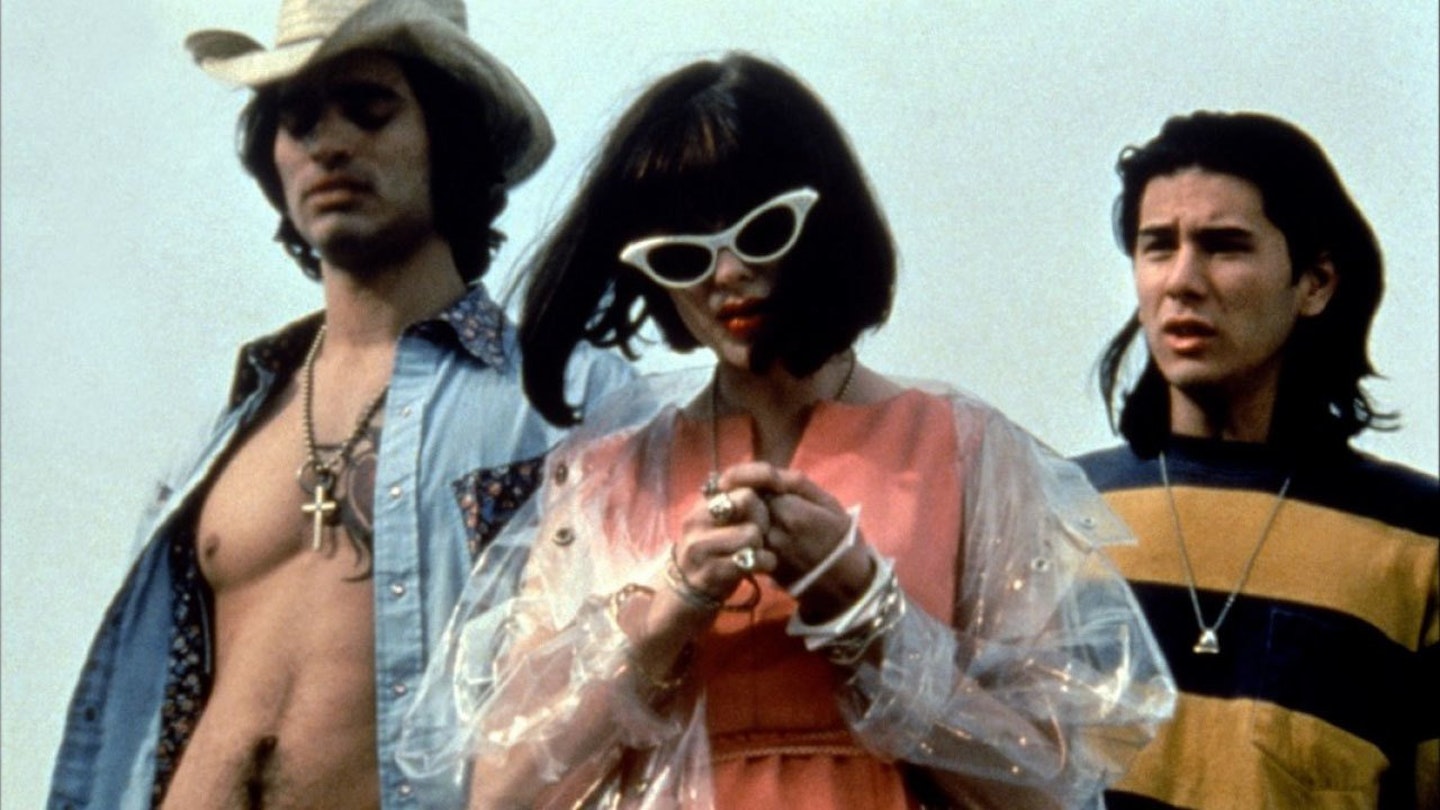The second instalment in director Gregg Araki's "teenage apocalypse" triptych, following 1994's Totally F***ed Up, is this trashy, ultra-violent trip through the fast food joints of America. Chronicling a familiar theme - young misfit couple go on a bloody rampage - it leaves even Natural Born Killers behind in the gross-out stakes.
Young lovers Jordan White (Duvall) and foul-mouthed harpie Amy Blue (McGowan) complete the patriotic colour scheme when they meet up with Xavier Red (Schaech), a sexy sociopath whom Jordan magnanimously invites along for the ride. After Red "accidentally" decapitates a Quickie Mart clerk, the three hit the road. As they do, making frequent stops at burger joints and liquor stores, the body count increases in ever more bizarre and surreal ways. But it is a long-lost love which eventually proves to be their downfall in a final reel that will make even those hardened by the John Wayne Bobbit case wince.
Imaginative set designs and locations elevate the film above any violence-for-violence's-sake accusations and enhance the feeling that this is a kind of surrealist nightmare, with cameos from The Brady Bunch's Christopher Knight and Hollywood madam Heidi Fleiss further adding to the hallucinogenic atmosphere. Araki even employs a soundtrack reminiscent of Natural Born Killers - including Nine Inch Nails, Belly and Curve - to back up his argument.
Much like Oliver Stone's violent lovers-on-the-lam opus, The Doom Generation stands as an indictment of the hopelessly violent American society, but turns the volume up way too high, causing much of the message to be lost in the decibels. But as a stylish black comedy, it is impressively uncompromising and should be applauded.
